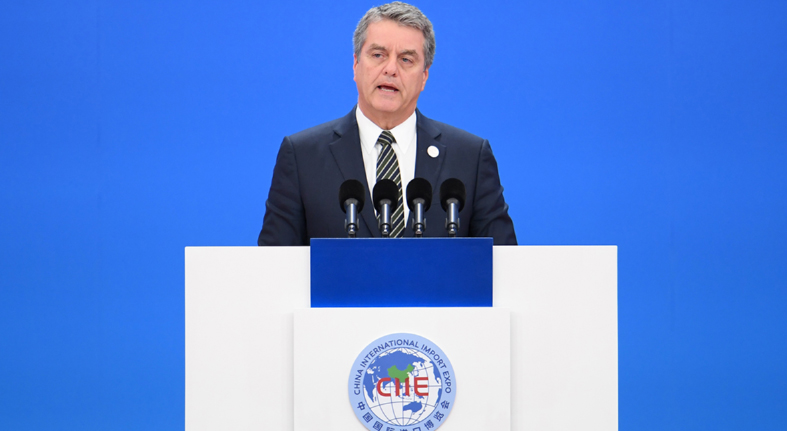Last year’s Expo was a sign of the Chinese government’s commitment to integration with the global economy.
This second edition demonstrates its intent to make import promotion an ongoing process, creating opportunities for businesses and consumers in China and around the world. This is very positive.
The Expo’s emphasis on imports is particularly welcome. It drives home the essential but often overlooked truth that trade is fundamentally about win-win cooperation.
Imports mean more choice and lower prices for consumers. For businesses, access to the best-priced inputs, wherever the source, means greater competitiveness, at home and in export markets.
For decades, predictably open international markets have allowed countries and companies to specialize and devote more resources to what they do well. The result has been growth, development, and unprecedented reductions in poverty. Our economies have become closely intertwined: today around two-thirds of all exports contain imported components.
But instead of predictability, the ongoing trade tensions mean that international markets are today marked by uncertainty.
All over the world, investors are thinking twice about committing funds to a big purchase of equipment, or a cross-border supply relationship, because they fear their profit margins will be eroded or wiped out by trade restrictions.
We see this in the trade data. Last month, WTO economists estimated that global merchandise trade would grow by only 1.2% in 2019. This is a sharp deceleration from April, when they thought trade would grow by 2.6%. Trade-related policy uncertainty has become the leading drag on growth, on trade, and on investment.
We cannot afford to let this continue. Global output growth is slowing down, and for most governments, scope to use traditional monetary and fiscal policy tools is limited.
The optimal way forward is for countries to work together. By doing so, they can set out a credible path towards a more stable, more predictable trading system. An international economy with more integration, not less. One that provides a level playing field for businesses big and small.
Reducing uncertainty in the global economy would yield dividends on multiple fronts.
For businesses, it would mean more confidence to invest.
For workers, it would mean better jobs and higher purchasing power.
For governments, it would leverage the impact of monetary and fiscal policy.
Credible cooperation does not mean that we can outsource solutions to one, or two, or a few big players. We must all be part of the solution, engaging at the World Trade Organization, including in the context of much needed reforms, and in forums like the G-20, where leaders can muster the necessary political will and coordinate their efforts.
The alternative to cooperation is, to put it bluntly, ‘lose-lose’. The title of this session has it right: only cooperation can break the vicious circle of uncertainty, underinvestment, and slow growth, and deliver pro-openness ‘win-win’ outcomes. This is our North, let’s pursue it together.


